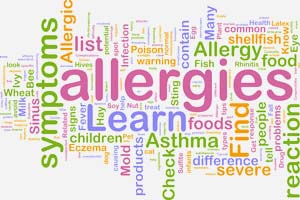Allergy News
The Australasian Society of Clinical Immunology and Allergy (ASCIA)…
Allergy Test Scam
26/3/2019 Allergy Test Australia: Anybody have experience with or using this company?

The Australasian Society of Clinical Immunology and Allergy (ASCIA)…
26/3/2019 Allergy Test Australia: Anybody have experience with or using this company?
One in every six people will experience at least one attack of hives at some point in their lives.
Hives can be triggered by a number of different factors. Allergy often can trigger hives as well as infections, medications, insect stings and food allergy may also trigger hives. Other conditions, such as systemic lupus erythematosus or problems with the thyroid gland, can also bring on an attack of hives in susceptible people.
Symptoms of hives include:
Allergens that commonly cause hives
In around one-third of cases, the cause of hives is unknown. Some factors known to cause hives include:
Diagnosis of hives
Hives can be commonly mistaken for insect bites or some other types of skin rashes. Diagnosis methods can include:
Treatment
Once the allergen has been correctly identified, sinusitis symptoms can be effectively managed and treated in a number of ways. Depending on the allergen, severity and frequency, there are many available treatment options from avoiding triggers, medication to desensitisation. Our doctors will discuss with you in more details.





The most important step in allergy management is correctly identifying the cause
Allergy Doctors provide professional, proven and accessible solutions to your allergy problems.